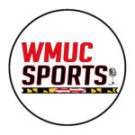By: Eric Myers & Eddie Hobbs
The eight-person commission tasked with investigating the alleged “toxic culture” within the Maryland football program has apparently finished its investigation within the program. The Washington Post obtained a copy of the report and made the 200-page document public on Thursday morning.
The commission reports that the Maryland football program had its problems within, but that the problems “stops short of ‘toxic’ label.”
University of Maryland President Wallace Loh announced the formation of the commission on August 14, 2018 — just over two months after the death of offensive lineman Jordan McNair — to “review… the practices and the culture of the football program…” On August 17, 2018, the University System of Maryland Board of Regents then took control of the investigation and added five more members to the Commission on August 24, 2018.
The goal of the Commission didn’t change after the oversight was shifted, and the Regents reiterated what Loh intended the commission to accomplish.
The Commission interviewed 165 people including: student athletes; parents of players; current and former Athletic Department staff; University Officials not in the Athletics Department; and other people with college football expertise.
During the Commission’s inquiry of the football program, the committee uncovered the mayhem within the Athletic Department.
Plenty in the report about a "rift" between Kevin Anderson and Damon Evans. KA felt DE was "trying to undermine" him and take his job, as well as going above his head to President Loh about athletic department matters.
— James Crabtree-Hannigan (@JamesCrabtreeH) October 25, 2018
“University ombudsman and assistant to President Loh, Cynthia Edmunds, described the Athletics Department’s operations during this period as ‘chaos and confusion,’” the report said. “A former coach compared the department’s dysfunction to ‘Washington [politics].’”
Through 2016 to 2018, the commission has found differing views on the culture within the football program and the coaching tactics deployed by former strength and conditioning coach Rick Court, and DJ Durkin.
Here’s a snippet of what current and former Maryland football players said about DJ Durkin: pic.twitter.com/Rv6YnP5hGT
— Max Marcilla (@MMarcilla98) October 25, 2018
The allegations against Court dated back to January of 2016, approximately a month after Court was hired by Durkin. Court allegedly approached a player working out on a lateral muscle pulldown machine where the alleged player was struggling with the workout due to surgery the player got in December of 2015. Court allegedly approached the player from behind and said, “come on motherf***er” and pressed the bar into his neck, choking him.
In the ESPN report that alleged the “toxic culture” within the program, one of the reports involved Court smacking a plate of food out of the player’s hands.
In a September 9, 2018 survey conducted by the commission, eight comments were received from current football players on the food being knocked from the player’s hand before the first road game of the 2016 season.
A staff member and Durkin said that the players found the incident “amusing, not intimidating.” Durkin mentioned to the commission that players were joking about the incident following the game, and that several witnesses cite a “pre-bowl game skit” later in the 2016 season.
Albeit, the player who had the food knocked out of his hand, didn’t find the event humorous. “Where I’m from, you don’t disrespect people like that,” the player said to the commission.
While the ESPN report indicated that food was used as punishment, coaches also used food as a reward in the “Champions Club.”
According to the Commission, players could become a part of the Champions Club if they consistently attended classes, practices, workouts, and other obligations put on by the coaching staff.
The report mentions a video that was produced by the Athletic Department that promoted the Champions Club and showed the members celebrating with steaks and crab cakes, while the non-members received hot dogs, hamburgers, and baked beans.
The Champions Club events would only happen “about once a semester” and that all team members would routinely eat food with other choices than hot dogs and baked beans according to the report.
Former Maryland quarterback Perry Hills–who was as senior on the team when Durkin just started his tenure at Maryland in 2016–said of the Champions Club in the report: “There’s guys who are buying in that have done the things that he’s asked. And he wants to show people that if they join in and do those things that he’s asking, that they’re going to be rewarded.”
Durkin said to the Commission that the Champions Club was for those “who don’t get all the recognition,” including walk-ons and players with minimal playing time.
The commission's survey for current team members provided wide-ranging comments on DJ Durkin.
Many praised his energy/passion but questioned whether he valued all players equally. “If you’re not a superstar he doesn’t really care about you. You are just a number on the roster.”
— Emily Giambalvo (@EmilyGiam) October 25, 2018
After finding the dysfunction within the Athletic Department, and reviewing the alleged incidents by the coaching staff, the Commission offered four recommendations.
The Commission believes that the head football coach should not be able to supervise the strength and conditioning coaches and should not have a hand in hiring or firing these coaches, something that is being deployed in various other football programs. For strength and conditioning the Commission also recommends, “that the University adopts voluntary standards to ensure effective and appropriate strength coaching.”
Like the Walters Inc. report, the Commission also recommended that the University implement an “Independent Medical Care Model.” The model would put health decisions about student-athletes into the hands of properly health care personnel and would “remove interference or influence from the coaching staff or the Athletics Department.”
Lastly, the Commission recommends improving the accountability of the Athletics Department, the most important method to improving accountability would be maintaining a log of all athletics related complaints, and track how these complaints are handled according to the Commission.






